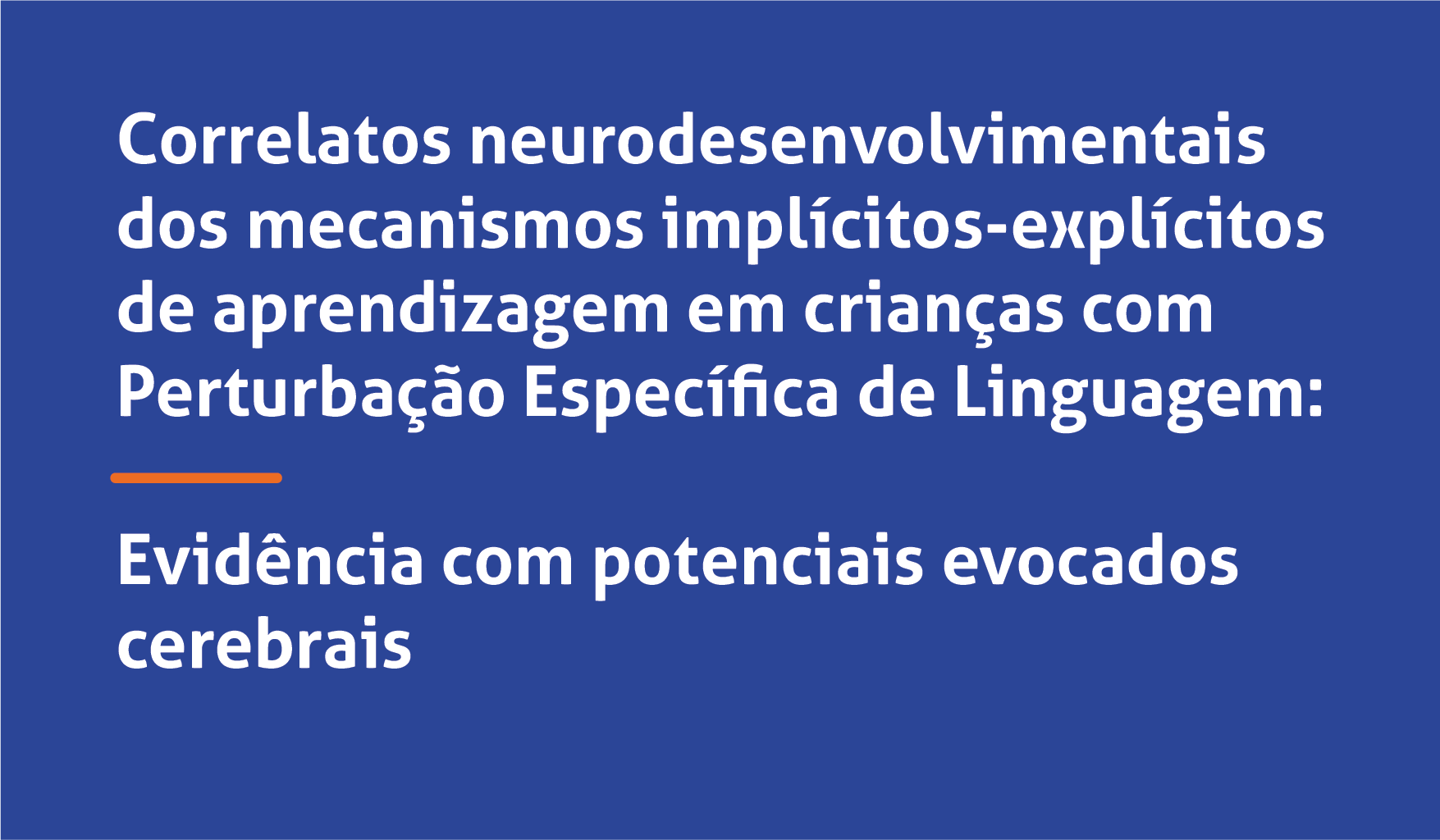Project Description
“Correlated neurodevelopmental of implicit-explicit learning mechanisms in children with specific language disorders: Evidence with brain evoked potentials”
This project will study, for the first time, the functioning of procedural and declarative memory in children with Language Development Disorders (also known as Specific Language Impairment – SLI), in pre-school age.
The researchers propose a new approach to analyze the role that implicit-explicit learning mechanisms play in language difficulties. In this way, the aim is to know to what extent memory deficits can contribute to language difficulties, as well as contribute to the development of intervention programs aimed at helping children with this disorder and also preventing behavioral dyslexia.
Abstract
A key question in current psycholinguistic research is whether the language difficulties observed in children with Specific Language Impairment (SLI) are due to abnormalities in the functioning of Procedural Memory (PM), a memory system involved in implicit learning and which takes on an essential role in language acquisition.
In addition, recent studies suggest that the severity of the difficulties observed in SLI children also depends on the role that Declarative Memory (DM) -a memory system involved in different forms of explicit knowledge- plays in compensating for the deficits observed in MP, although little is known about the mechanisms that allow this compensation.
With this project, the researchers seek, for the first time, to analyze the nature and the dynamics of the functioning of PM-DM in SLI children, developing a study that will follow the developmental trajectories of SLI children in preschool age and controls, until they enter primary school. and learn to read and write.
Indeed, given that 50% of children with SLI also have Developmental Dyslexia (DD), it is essential to conduct studies that identify the neurocognitive profile of children with SLI who also reveal severe reading and writing difficulties and, ultimately, to test which DM strategies can be more effective in preventing these children from developing DD.
Previous studies were based on cross-sectional data obtained from a wide range of participants with different linguistic profiles, making it difficult to generalization the results and reach conclusions. In addition, as most of the evidence was obtained from behavioral tasks, studies using other tasks and paradigms are needed.
In this project, we propose a new approach to analyze the role that implicit-explicit learning mechanisms play in language difficulties observed in children with SLI, which combines an Artificial Grammar Learning (AGL) paradigm with the evoked potentials technique (EPT).
The combination of these tasks/paradigms in a longitudinal study will allow us to advance our knowledge about the degree to which
MP-MD can contribute to the difficulties observed in the SLI and to the study of (dis)continuities between SLI and DD, and it will also offer important contributions to the development of intervention programs that aim to help children with SLI to overcome their difficulties and to prevent DD.
100 children will be recruited (50 SLI-50 controls) who will be tested at different times in different AGL tasks with simultaneous collection of behavioral data and ERTs.
Given the research questions the project seeks to answer and the methodological innovation it introduces, we believe that this project will have significant implications for the scientific community, also constituting the first opportunity to study children with SLI from a neurocognitive perspective in Portugal.
Funding Institution
FCT
Global Budget
239,995.00 €
CINTESIS Budget
1000 €

